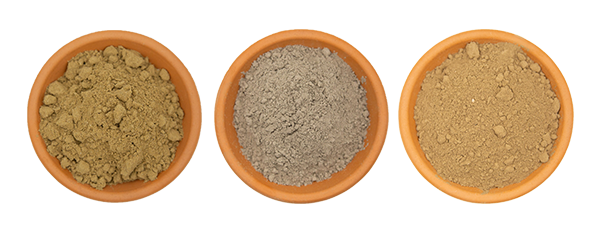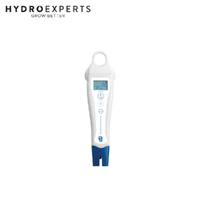Hard water results primarily from excess calcium, magnesium, sodium and other minerals dissolved in the ground water.
Too much of any of these can greatly alter the mineral nutrient balance in the root zone and nutrient reservoirs. Sodium, for instance, competes with Potassium and you may end up with Potassium deficiency symptoms like brown leaf tips and less than optimal growth & yields. Many other deficiency symptoms can occur when too much of one mineral is "out competing" others.
Most hydroponic nutrients are formulated based on "pure water" and this is most definitely the way to go because you know exactly what you are giving your plants, therefore clean water is definitely an advantage when looking for the perfect crop!
It is much more advisable to have your tap water tested to know exactly where your high EC / PPMs are coming from. If you have hard water with semi-high ppms (50-250 ppm or mg/L) but do not have any detrimental effects on your plants then you probably won't have to worry.
If you are having issues, the most beneficial measure to take is to have your water tested. If it turns out you have high sodium, simply using a hard water nutrient formulation will not solve the problem. You must remove the sodium by reverse osmosis. Water softeners are not recommended as they add more sodium to your water by ion exchange. In some cases a simple, inexpensive carbon filter can help reduce some of the dissolved minerals in your water. Many growers complain of bizarre nutrient deficiencies and reduced yields... start at the source - your tap water. Fixing this problem is well worth the investment.
To have your tap water tested, run your tap water for about a minute then fill a clean hard plastic bottle (preferably a nalgene water bottle). Label the bottle with your address and phone number, make sure to wrap bottle safely and ship to your chosen analytical lab.
You may also contact an analytical company and they will send out a sterile water bottle for your water sample. Sterile bottles are important if you are having bacterial analysis done.
When searching for a local analytical company, look for one that specializes in drinking water analysis. A 'basic metals' test should be about $60 to $100. If you also want bacterial counts, you can expect to pay a little more.
Most drinking water analyses will give you:
pH, TDS, arsenic, chloride, nitrate, phosphate, sulphate, sodium, potassium, magnesium, calcium (free ion and as calcium carbonate), iron , copper, manganese, zinc, fluoride, lead.
The analysis report should list your test results and compare them with the national maximum allowable standards for drinking water. For example, Health Canada has drinking water standards posted on their website for your reference:
http://www.hc-sc.gc.ca/ewh-semt/pubs/water-eau/index-eng.php#tech_doc
These guidelines are a good reference, but what may be acceptable for drinking water is not necessarily acceptable for plants. For example, Health Canada allows 200 ppm of sodium in drinking water. This amount of sodium can be detrimental to plants when adding a hydroponic nutrient. A general rule is to keep sodium under 50 ppm, above this level and you may see nutrient deficiency symptoms as sodium "out competes" other essential ions. Any one mineral that is over 100 ppm should be of concern. If your total TDS is 250 ppm and almost all of it comes from Calcium, then you seriously need to consider filtering your water, as too much calcium from your tap water plus nutrient will throw your nutrients out of balance.
If the total 250 ppm is a result of many minerals in small, relatively equal amounts, then generally there may not be an issue. Keep in mind that a Reverse Osmosis or filtration system is a good investment if you are at all concerned about the effects your tap water is having on your garden's performance. Most Reverse Osmosis systems will actually remove many forms of bacteria as well!
Typical water treatment methods:
http://www.hardwater.org/water_treatment.html#mechanical





